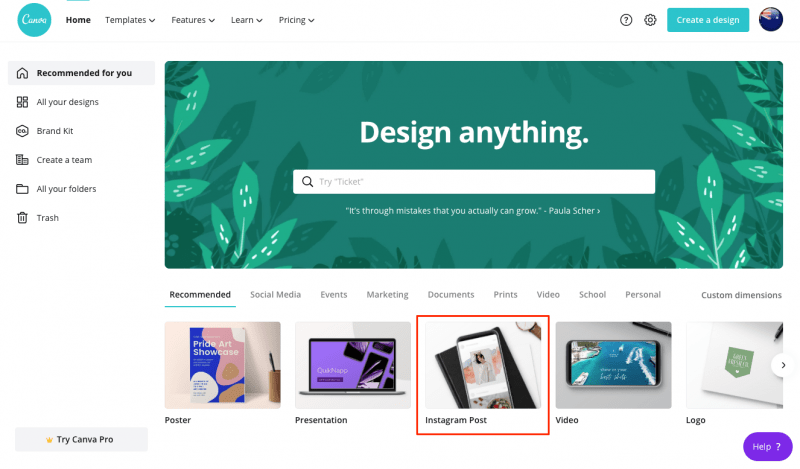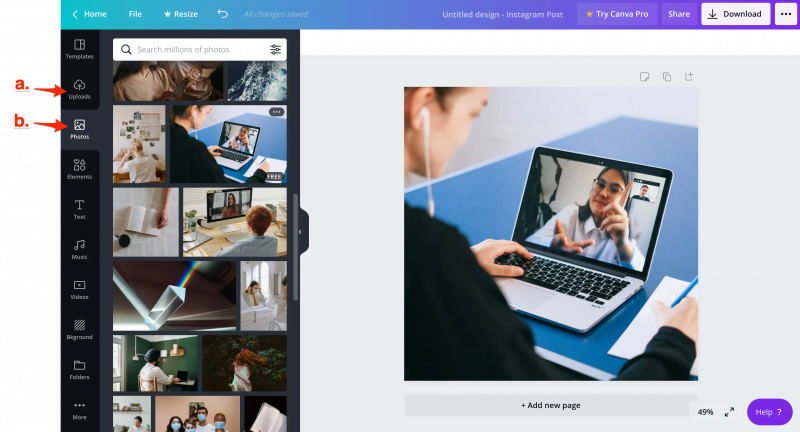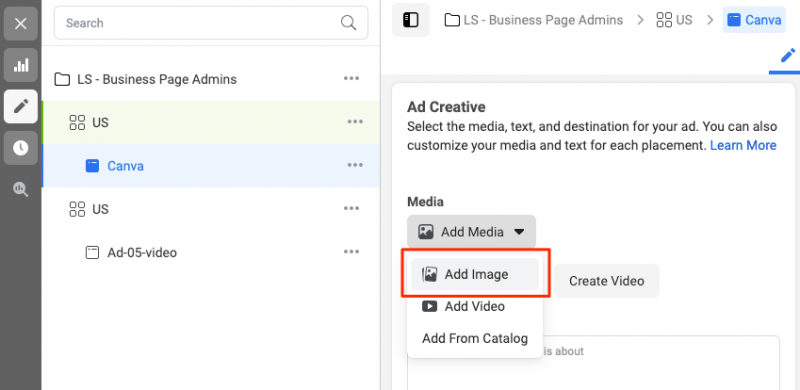When it comes to creating images for Facebook and Instagram ads, those of us who are more left-brain than right-brain tend to struggle.
If you’re running a lean start-up or small business, then like many of us, you want to save a few dollars on graphic designers and expensive software by designing your own Facebook and Instagram ads. That’s where Canva’s Facebook and Instagram templates can help.
Canva makes it easy for us non-designer types to design ads using a web based interface. Aside from being easy to use, the basic version of Canva is free, so you can jump right in and start creating images for your ads.
No expensive software or designers required.
If you don’t already have a Canva account, go ahead and sign-up, it’s free, but you can try the Pro version for 30 days if you wish, it does have some cool added features like auto-resize and animation options.
For the purposes of this tutorial, the free version is fine.
Once you’ve signed up, here’s the easiest way to design an image for your ad that will be suitable for both Facebook and Instagram:
Step 1: Select the Instagram Template in Canva

Wait… aren’t we designing a Facebook Ad? Yes, we are. The Instagram template is square (1080 x 1080 pixels), which is what Facebook recommends as the best format to fit MOST of their ad placements. Facebook has 5 different size recommendations, but a square ad image will show up in most of them. Using a square image saves you a lot of time when creating new ad campaigns.
Step 2: Select a Photo
If this is your first time using Canva, it will recommend you use one of their Instagram templates. DON’T. These templates are too text heavy for an ad. Facebook recommends that text take up 20% or less of your ad. In fact, they will often penalise an ad if it contains more than 20% text.
Instead, you can either:
- a) Upload an existing image you have that relates to your ad
- b) Use one of Canva’s stock images

Canva provides has a variety of free stock photos as well as ones you can purchase for as little as $1, which is darn cheap compared to some other stock photography libraries or hiring a photographer 😉.
Step 3: Add Your Essential Copy
Use the Test tool to add some text. You want to try to make sure that your text does take up more than 1/5th (20%) of the image. Do be too fussy here, just eyeball it.
If there’s not enough contrast between the text and the image in the background, then also add a square element to your design as a solid background to your text, like so:
Step 4: Download Your Image & Add it to Your Facebook Ad
Finally, click the download button to download and save your image locally.
Now simply upload the image to Facebook Ads Manager, and finish creating your ad.

Publish, and you’re done!
This blog post may contain affiliate links.
Luke is the founder of LeadSync and, as a Digital Marketer, has been helping businesses run lead generation campaigns since 2016.
